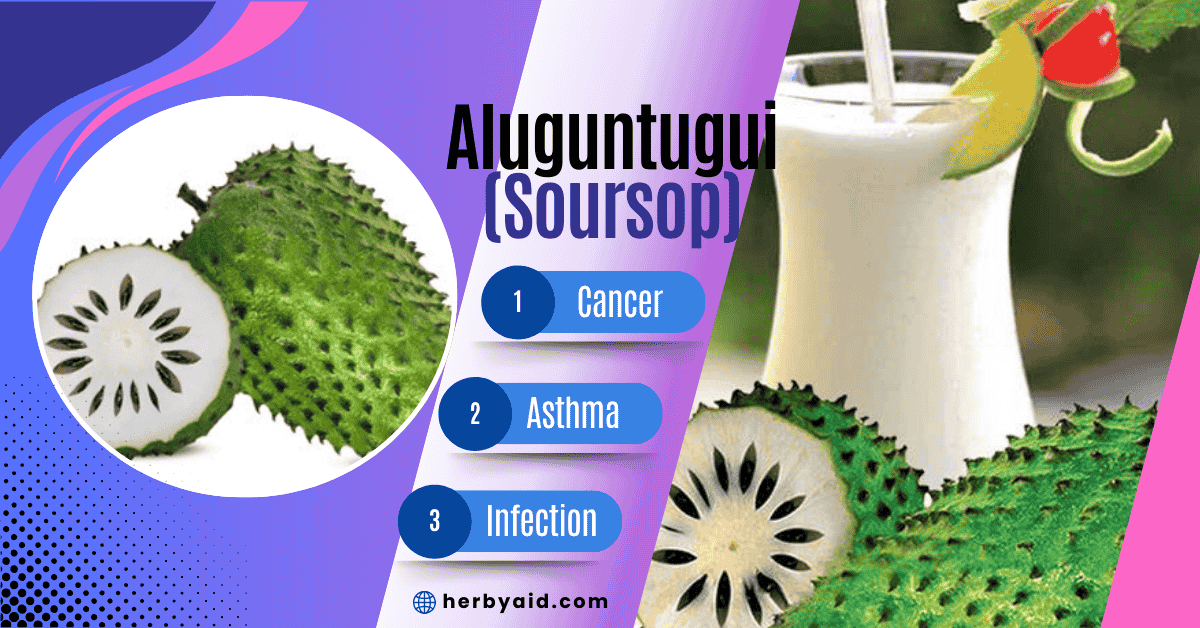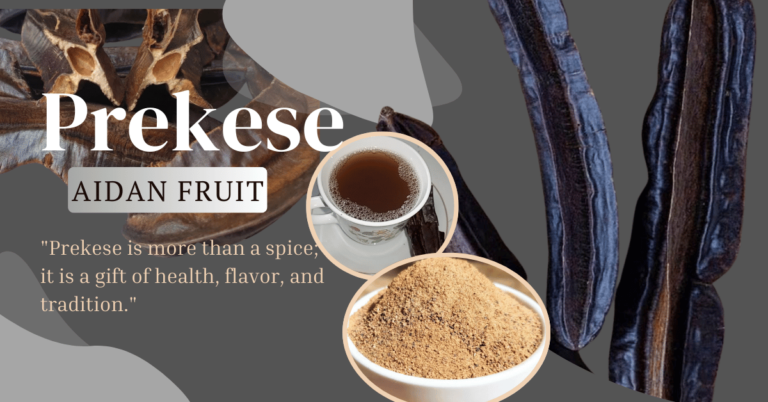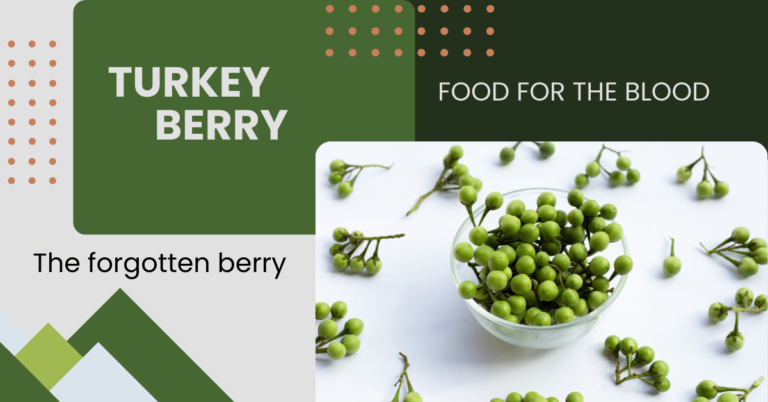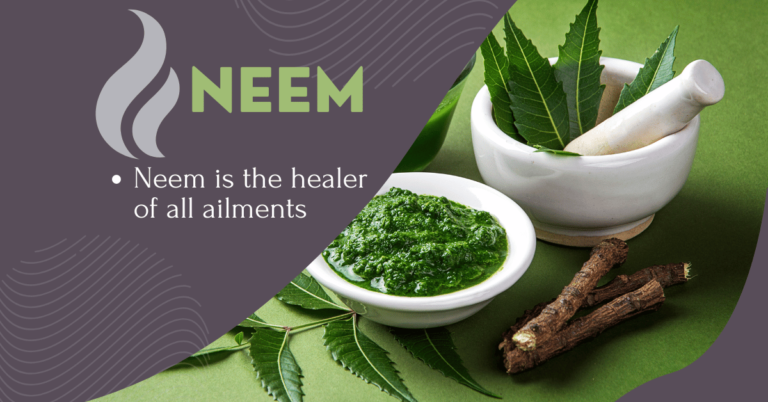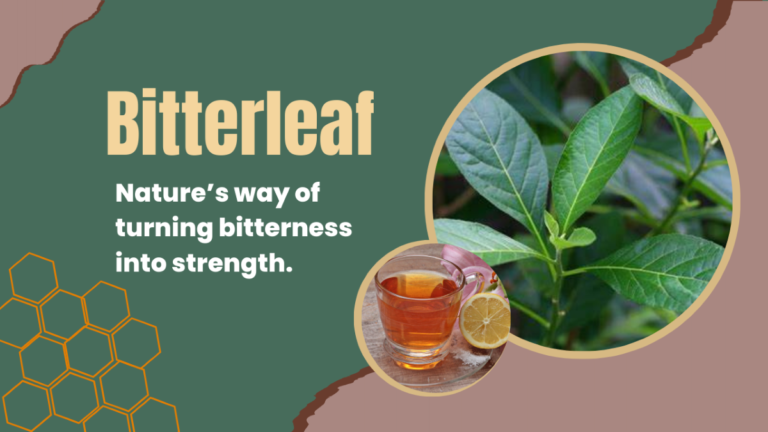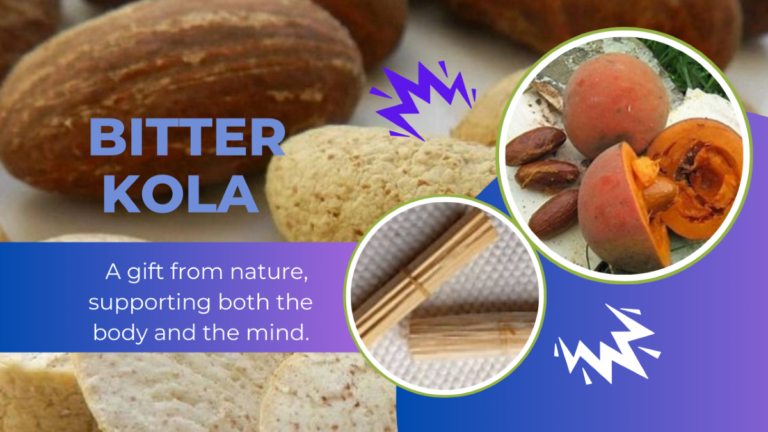Aluguntugui (Soursop)
Beneath its spiky skin, Aluguntugui holds the secret to wellness and vitality.
– Ghanaian Quote
Aluguntugui, scientifically known as Annona muricata, is a fruit recognized for its distinctive flavor and potential health benefits, which have been explored through various scientific studies. Traditionally used in folk medicine and hailed as a cancer-fighting food, it is rich in phytochemicals, including antioxidants, that contribute to its numerous health-promoting properties.
The English name for Aluguntugui is soursop, also commonly called graviola in Brazil, guanábana in Spanish-speaking countries like Mexico and Colombia, and corossol in French-speaking regions such as Haiti and parts of West Africa.
Because it is naturally sweet, many sweet things in Ghana are compared to it. This association is so strong that the popular music duo Keche even honored it in a song, using the exact words: “Life is tasty like aluguntugui.”
Table of Contents
Aluguntugui Fruit
The fruit is oval or heart-shaped, covered in soft, curved spines. The inner pulp is white, fibrous, and juicy, with a creamy, slightly grainy texture containing numerous black, inedible seeds. It has a unique tropical, slightly tangy taste, with a refreshing aroma often likened to a blend of pineapple and coconut.
This amazing fruit is commonly eaten fresh, blended into smoothies, or used to make desserts and beverages. It can also be served chilled and enjoyed with cookies.
Soursop Juice
This is a refreshing and nutritious drink made from the pulp of the aluguntugui fruit. It is rich in vitamin C, fiber, and beneficial antioxidants. The juice is known for its potential to boost the immune system, improve digestion, and support overall health.
Peel the fruit, remove the seeds, and blend the pulp with water until smooth. Strain the mixture, add sweetener if desired, and serve chilled. I used “soursop juice” because it is the most popular term for this beverage.
Nutritional Profile
Aluguntugui is rich in essential nutrients, including:
- Vitamins: High in vitamin C, which supports immune function and skin health, and contains B vitamins like thiamine, riboflavin, and niacin.
- Minerals: Contains potassium, magnesium, and copper, which are important for heart health, muscle function, and energy production.
- Fiber: A good source of dietary fiber, aiding digestion and promoting gut health.
- Antioxidants: Contains compounds like flavonoids, alkaloids, and acetogenins, which help combat oxidative stress and inflammation.
It is also low in calories but high in essential nutrients:
- Calories: 66 per 100 grams
- Carbohydrates: 16.8 grams
- Fiber: 3.3 grams
- Protein: 1 gram
- Vitamin C: Approximately 34% of the recommended daily intake (RDI)
- Potassium: About 8% of the RDI
Nutritional Table
Here is a table showing the key nutrients found in aluguntugui and their approximate concentration per 100g of fruit:
| Nutrient | Amount per 100g | % Daily Value (DV) |
|---|---|---|
| Calories | 66 kcal | 3% |
| Carbohydrates | 16.8 g | 6% |
| Dietary Fiber | 3.3 g | 13% |
| Protein | 1.0 g | 2% |
| Fats | 0.3 g | <1% |
| Vitamin C | 20.6 mg | 23% |
| Vitamin B1 (Thiamine) | 0.07 mg | 6% |
| Vitamin B2 (Riboflavin) | 0.05 mg | 4% |
| Vitamin B3 (Niacin) | 0.9 mg | 6% |
| Folate (B9) | 14 µg | 4% |
| Potassium | 278 mg | 6% |
| Magnesium | 21 mg | 5% |
| Calcium | 14 mg | 1% |
| Phosphorus | 27 mg | 4% |
| Iron | 0.6 mg | 3% |
Key Nutrients in Aluguntugui
Because of its sweet taste and numerous health benefits, people often consume more than necessary without considering its potential adverse effects. It should be consumed in moderation, as its high carbohydrate content can cause a spike in blood sugar levels when taken in excess.
Aluguntugui Leaves
The leaves are dark green, glossy, and elliptical, with a smooth texture and a distinct aroma when crushed. They grow alternately on the branches and are widely used for their medicinal properties.
Aluguntugui Leaves Health Benefits
The leaves are widely used in herbal remedies due to their potential health benefits. They are believed to support the immune system, aid in relaxation, and help regulate blood sugar levels. The leaves are commonly used to make tea or infused into extracts for medicinal purposes, popularly known as soursop tea.
Soursop Tea
Soursop tea is made by steeping dried or fresh aluguntugui leaves in hot water. It is commonly used for its potential health benefits, including immune support, relaxation, and digestive aid. Drinking soursop tea regularly is believed to help detoxify the body and promote overall wellness.
Aluguntugui Seeds, Bark and Root
The seeds, bark, and roots are traditionally used for medicinal purposes. The seeds contain natural compounds with antimicrobial properties, while the bark and roots are often infused into herbal remedies for their potential anti-inflammatory and pain-relieving effects.
The seeds must be ground into powder before use, while the bark and root can be consumed either in powdered form or raw after being thoroughly washed. They can be infused in water or hard-boiled for consumption.
Overall Health Benefits
- Rich in Antioxidants
- Aluguntugui contains flavonoids, tannins, and phenolic compounds that help neutralize free radicals, reducing oxidative stress and potentially lowering the risk of chronic diseases like heart disease and cancer.
- Anti-inflammatory Effects
- Compounds such as acetogenins have been shown to reduce inflammation, which may help with conditions like arthritis. Animal studies suggest aluguntugui extract can lower inflammation markers.
- Immune Support
- The high vitamin C content strengthens the immune system, aiding in the body’s defense against infections.
- Antimicrobial Properties
- Laboratory tests indicate that aluguntugui extracts possess antibacterial and antifungal properties, potentially combating bacteria responsible for oral diseases and infections like cholera.
- Potential Anticancer Properties
- Studies show that extracts from aluguntugui leaves and fruit exhibit cytotoxic effects on cancer cells, particularly in breast, prostate, and colon cancers. However, clinical trials in humans are needed to confirm these findings.
- Digestive Health
- The fiber content in aluguntugui promotes regular bowel movements and may help prevent constipation.
- Blood Sugar Regulation
- Animal studies suggest that aluguntugui extract may lower blood sugar levels, with diabetic rats showing a reduction of up to 75%. Further research is needed to determine its effects in humans.
Cancer
Annomuricin, annomutacin, and annopentocin are acetogenins found in Aluguntugui, recognized for their cytotoxic properties. These compounds have demonstrated toxicity against various cancer cell lines in laboratory studies.
Cytotoxic Effects on Cancer Cells
- Annomuricin: Found to be toxic to breast, colon, and lung cancer cells, with specific variants (A, B, C, and E) showing effectiveness against colon and pancreatic cancer cells.
- Annomutacin: Exhibits toxicity against lung, breast, and colon cancer cells, with notable effects in laboratory tests.
- Annopentocin: Effective against lung, colon, and pancreatic cancer cells, demonstrating promising cytotoxic potential.
While these findings are significant, clinical trials in humans are still needed to confirm their effectiveness.
Antimicrobial Properties and Potential Applications
In addition to their cytotoxic effects, annomuricin, annomutacin, and annopentocin are cyclic peptides belonging to a class of natural products known as bacteriocins. These compounds, produced by certain Lactobacillus strains, exhibit antimicrobial activity, particularly against Gram-positive bacteria.
- Annomuricin: Active against foodborne pathogens like Listeria monocytogenes, making it a potential natural food preservative.
- Annomutacin: Similar to annomuricin, it targets harmful bacteria and is being studied for its role in probiotics and food preservation.
- Annopentocin: Effective against bacteria like Staphylococcus aureus and Enterococcus faecalis, with possible medical and food industry applications.
These properties make aluguntugui-derived compounds a subject of interest for cancer research, natural preservatives, and antimicrobial therapies.
Home Remedies
Ghanaians once deeply valued home remedies, and while they are still practiced, their use has become less frequent. Below are some traditional remedies that feature aluguntugui (soursop) as the main ingredient:
Stomach Pain/Fever
Ingredients:
- A handful of aluguntugui bark
- Two handfuls of the leaves
- Two thumbnail-sized pieces of ginger
- One lime
Preparation:
- Wash all ingredients thoroughly in a salt solution, then rinse with clean water.
- Boil the bark in water for 15 minutes.
- Lightly crush the ginger and add it along with the leaves.
- Allow to simmer for an additional 5 minutes.
- Remove from heat, strain, and serve warm with lime.
Dosage: Take twice daily after meals.
Hypertension/Back Pain
Ingredients:
- Two handfuls of aluguntugui leaves
- A handful of the bark and root
- Two pods of prekese
Preparation:
- Wash all ingredients thoroughly in a salt solution, then rinse with clean water.
- Boil the bark, root, and prekese for 20 minutes.
- Add the leaves and let simmer for an additional 5 minutes.
- Remove from heat and drink warm.
Dosage: Take twice daily after meals.
Note: This remedy cleanses the system, so increased urination is expected.
Cancer Support
Preparation 1: Pawpaw & Aluguntugui Blend
- Wash a whole ripe pawpaw thoroughly (including the skin and seeds).
- Extract only the pulp of aluguntugui.
- Blend the pawpaw (skin and seeds included) with aluguntugui pulp and water.
- Serve ¼ glass twice daily.
Note: It has a strong scent but is not sour, so do not add any sweetener. This is not a cure, but it has helped people on medication heal faster.
Preparation 2: Herbal Decoction for Tumors, Anemia & Arthritis
- Wash aluguntugui bark, leaves, prekese, and cloves thoroughly.
- Boil them together in water.
- Drink warm while also including aluguntugui fruit in your diet as a dessert.
Natural Pesticide Preparation
Ingredients:
- Neem leaves
- Banana peels
- Aluguntugui powdered seeds
Preparation:
- Soak all ingredients in water for three nights.
- Strain the infused liquid.
- Use the liquid as a natural pesticide.
Erectile Dysfunction
Ingredients:
- A handful each of:
- Aluguntugui roots
- Palm nut roots
- Coconut roots
- Orange roots
Preparation:
- Wash all ingredients thoroughly in a salt solution, then rinse with clean water.
- Boil for 20 minutes.
- Serve warm, twice daily.
Infections
Preparation 1: Aluguntugui & Lime Blend
- Blend aluguntugui pulp with water.
- Serve with lime juice.
Preparation 2: Herbal Infusion
- Boil aluguntugui leaves with cloves for 5 minutes.
- Serve warm.
Additional Benefits:
- Supports relief from constipation, indigestion, and depression.
Asthma
Ingredients:
- 1 aluguntugui (pulp only)
- 2 carrots
- 1 onion
- 1 lemon
Preparation:
- Wash all ingredients thoroughly in a salt solution, then rinse with clean water.
- Blend aluguntugui pulp, carrots, and onion with water.
- Strain and mix with lemon juice.
- Serve fresh.
Additional Benefits:
- Also helps with pneumonia and tuberculosis (T.B.).
High Blood Pressure
Ingredients:
- A handful each of:
- Pawpaw leaves
- Boundary tree leaves (Susumasa)
- Pear leaves
- Aluguntugui leaves
- Lemon
Preparation:
- Wash all ingredients thoroughly in a salt solution, then rinse with clean water.
- Boil the leaves together.
- Strain and serve warm with lemon juice.
Potential Risks and Considerations
- Neurotoxicity
- Some compounds in aluguntugui, particularly acetogenins, have been linked to neurotoxicity in high doses. Overconsumption of aluguntugui or its supplements may cause neurological issues, such as movement disorders.
- Pregnancy and Breastfeeding
- The leaves, seeds, and bark are not recommended for pregnant or breastfeeding women due to limited safety data and potential risks. However, the fruit itself contains folate, which supports fetal development and helps prevent blood loss. Pregnant women should consume only the fruit and avoid the seeds, bark, and leaves.
- Drug Interactions
- It may interact with medications, particularly those for blood pressure and diabetes. Individuals on medication should consult a healthcare provider before consuming it regularly.
- Allergic Reactions
- Some individuals may experience allergic reactions such as skin rashes or gastrointestinal discomfort.
My Final Submission
Aluguntugui is widely enjoyed for its sweet, refreshing taste, making it a popular fruit among many. However, it is important for people to recognize that it offers far more than just its pleasant flavor. Beyond being a delicious tropical fruit, it is packed with powerful nutrients, antioxidants, and medicinal properties that contribute to overall health and well-being.
By understanding the full range of benefits that it provides, people can begin to appreciate its true value beyond taste. From boosting the immune system and supporting digestion to its potential role in managing ailments like hypertension, infections, and inflammation, it serves as a natural remedy that has been used in traditional medicine for generations. Additionally, its antimicrobial and anticancer potential, along with its applications in home remedies and sustainable practices, further highlight its significance.
Recognizing its enormous benefits encourages a more intentional and informed approach to its consumption. Instead of being valued solely as a sweet treat, it can be incorporated into daily life as a functional food with healing properties, enhancing overall health while preserving age-old natural remedies.

